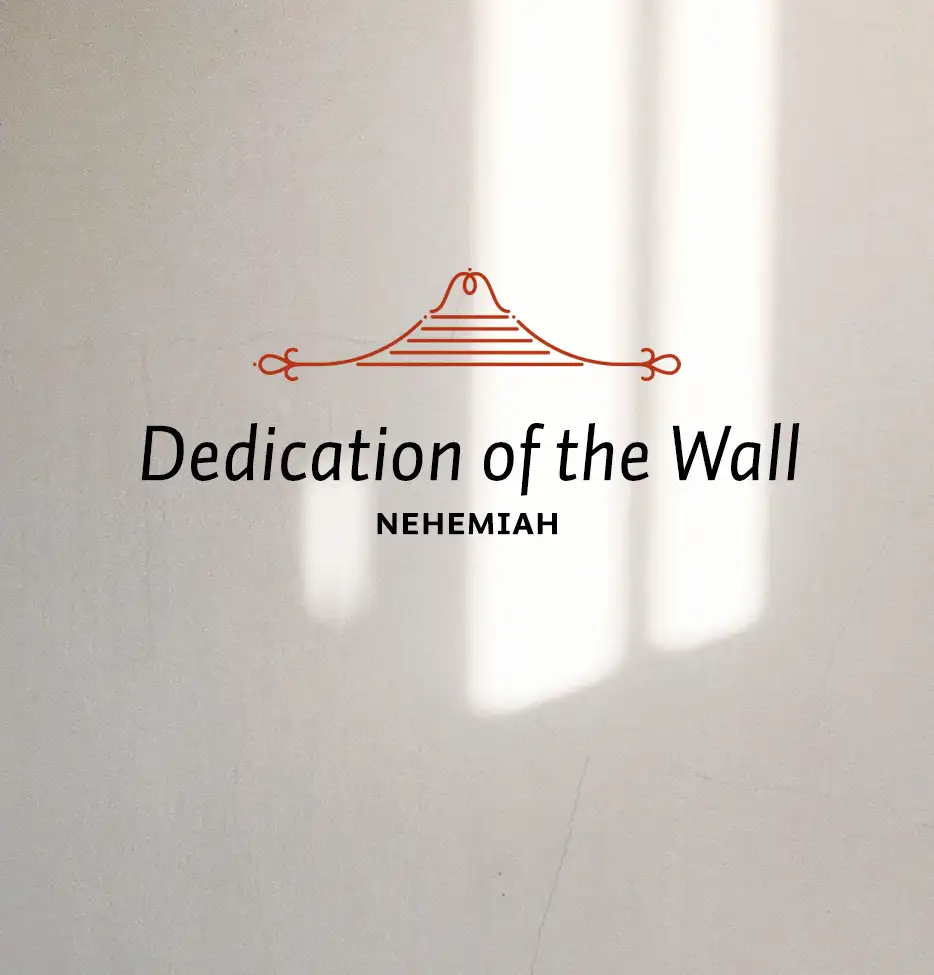2. Rejoicing. The second thing I notice about the celebration services at the dedication of Jerusalem’s wall is the rejoicing. This is related to what I have been saying about singing, since the best singing flows from a rejoicing heart. But singing can also be sad. Some hymns have a sad or melancholy tone. Since rejoicing is emphasized in Nehemiah 13, we are to understand that on this occasion the singing in Jerusalem was all of a joyful nature.
This element is emphasized more than any other. Verse 43 is the climax of the story, and it is striking that the root of the Hebrew word for “joy” or “rejoicing” occurs five times in just this one verse. What a contrast with Ezra 3:12-13, which tells of weeping on the part of the older returned exiles at the service of dedication of the foundation of the temple. The older people remembered the former temple, which Nebuchadnezzar had destroyed, and contrasted the new foundations with it unfavorably.
There was nothing like that now. The text says, “And on that day they offered great sacrifices, rejoicing because God had given them great joy. The women and children also rejoiced.” It says, “The sound of rejoicing in Jerusalem could be heard far away.”
I want to note one more thing about that verse. There is a five-fold repetition of the words “joy” or “rejoice.” But notice that it is not said merely that they felt joyful or were enjoying themselves but that this was “because God had given them great joy.” That is, their joy was spiritual and not merely a hedonistic thing. It was exactly what Paul was to speak of later in writing to the Philippians, when he said, “Rejoice in the Lord always. I will say it again: Rejoice!” (Phil. 4:4).
J. G. McConville says at this point, “If the joy of Nehemiah’s Jerusalem seems alien and Paul’s unnatural, it is simply a measure of the difficulty experienced by a rich western world in finding well-being in godliness itself. What Nehemiah and Paul knew—in direct contrast to the modern doctrine that he who acquires most and succeeds best is happiest—is that joy, like love, peace, self-control, etc. (cf. Gal. 5:22), is spiritual.1
There is one more thing. Strictly speaking, the account of the dedication of the wall of Jerusalem ends with verse 43. But in Nehemiah’s mind (since he is telling the story) the account does not really end there but continues with: 1) the appointment of men to be in charge of the storerooms for the temple and the provision of supplies for the services (Neh. 12:44-47); and 2) the continuing purification of the people by excluding from their official number all who were of foreign descent (Neh. 13:1-3).
Nehemiah very carefully links those acts to the time of the dedication by using the words “at that time” (12:44) of the first and the words “on that day” of the second (13:1).
It is not hard to apply this. It means that the times of rejoicing, though important, are not ends in themselves but are meant to be additional ongoing moments in the lives of those who have given themselves to God. Rejoice in God? Of course! We above all other people should rejoice in God. In fact, only those who have been redeemed by the Lord Jesus Christ have any real and deep cause for rejoicing. But that is not all we have to do. We have work to do too, and we must get on with it.
In fact, we are going to see that even Nehemiah had to get on with it. Because although he had rebuilt both the wall and the nation, he was to find that the task of rebuilding the nation at least was not one that could be done once for all and then be neglected. On the contrary, he had to tackle it all again on a future appointment to Judah, which is what the final chapter is about.
1J. G. McConville, Ezra, Nehemiah and Esther, in The Daily Study Bible—Old Testament, ed. John C. L Gibson (Philadelphia, PA: The Westminster Press, 1985), 142-143.






